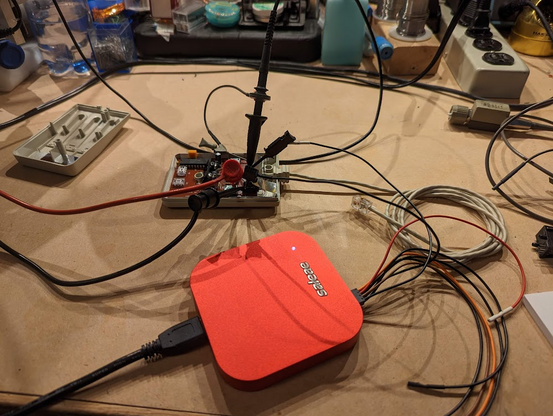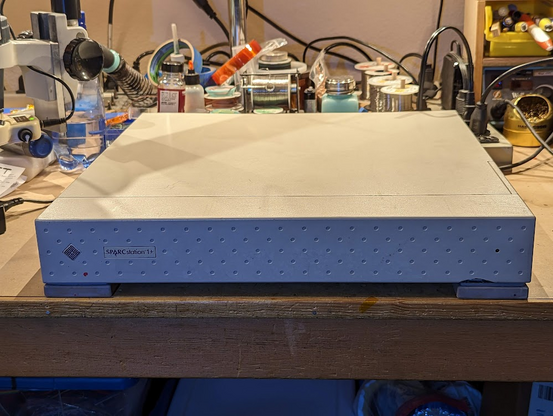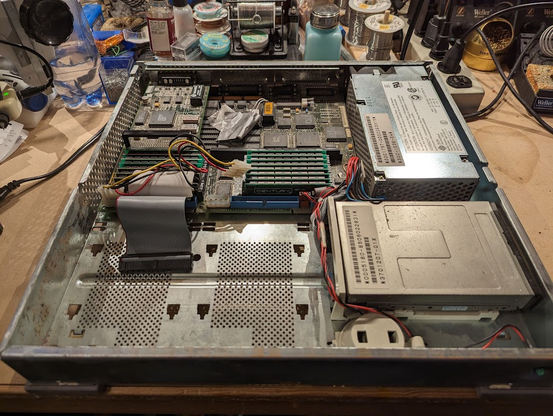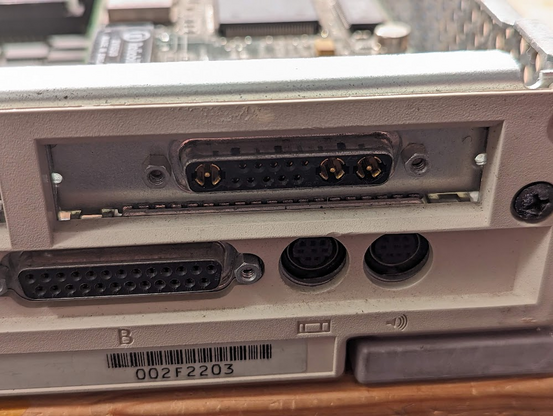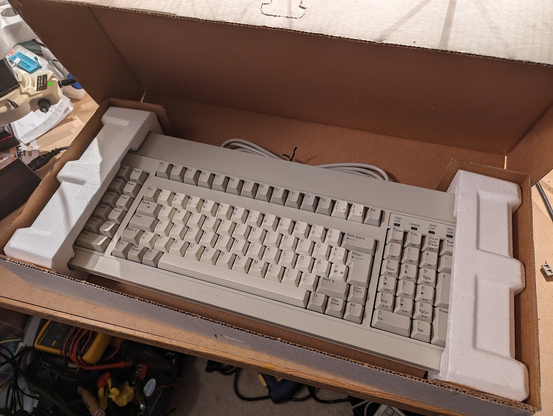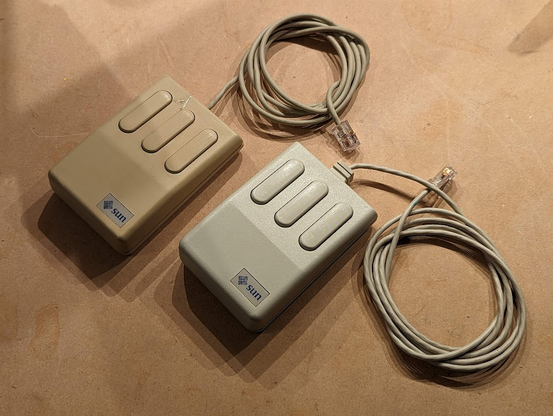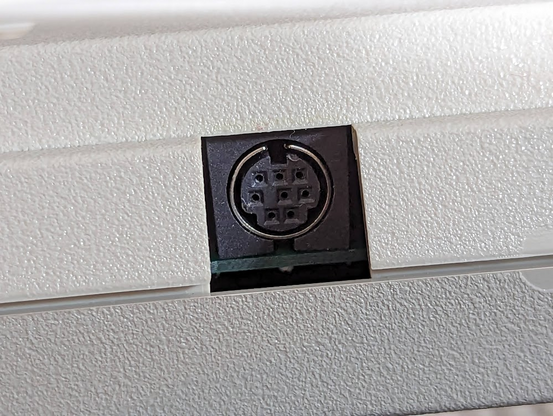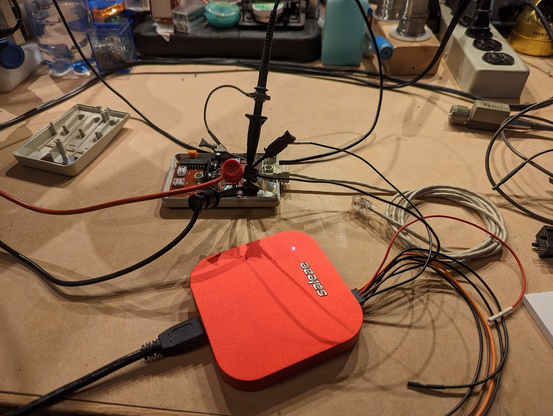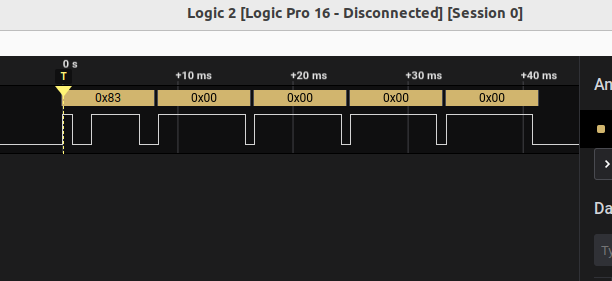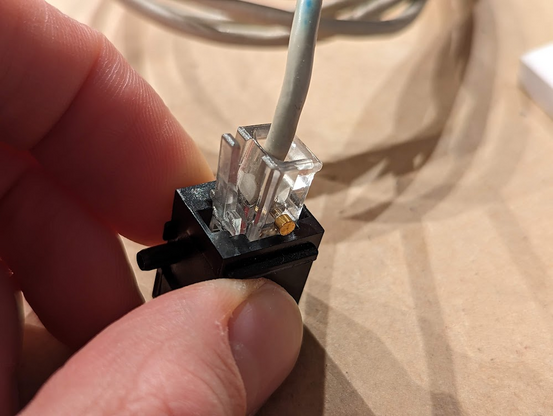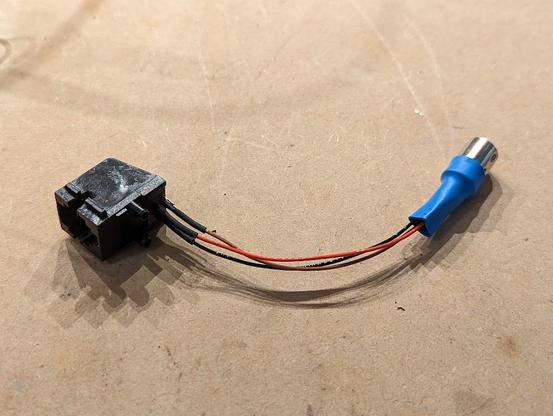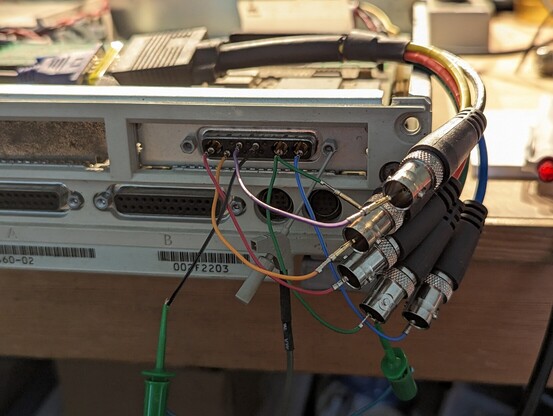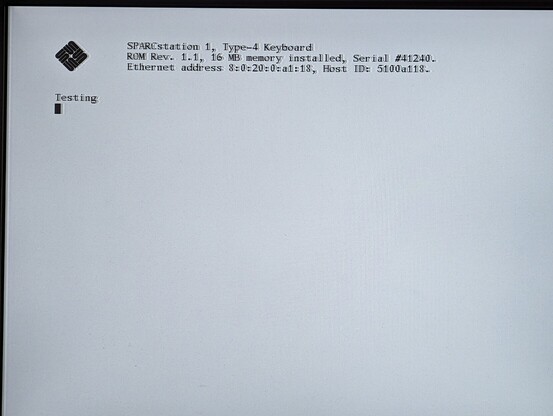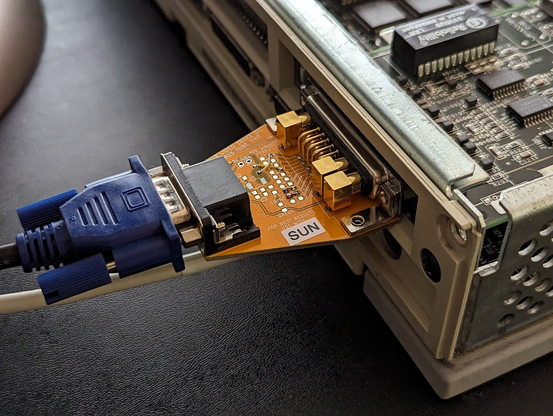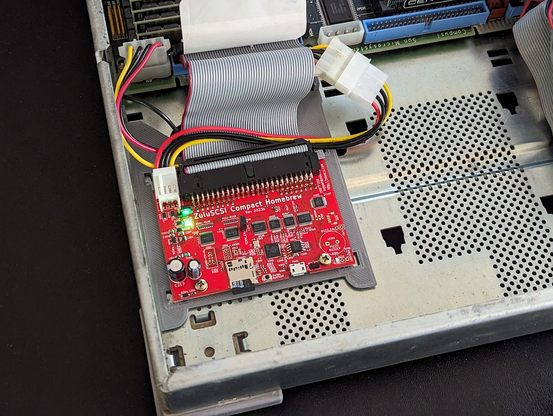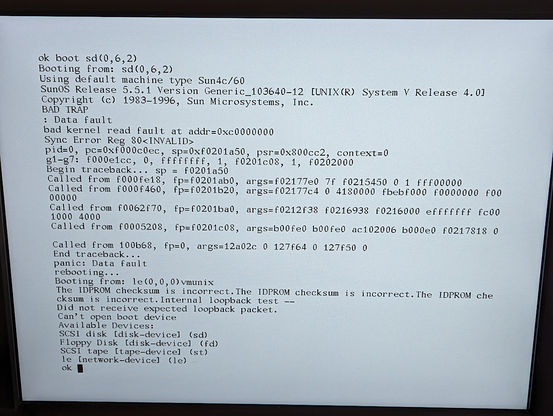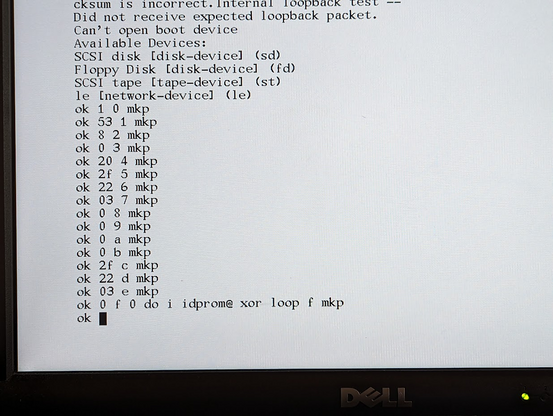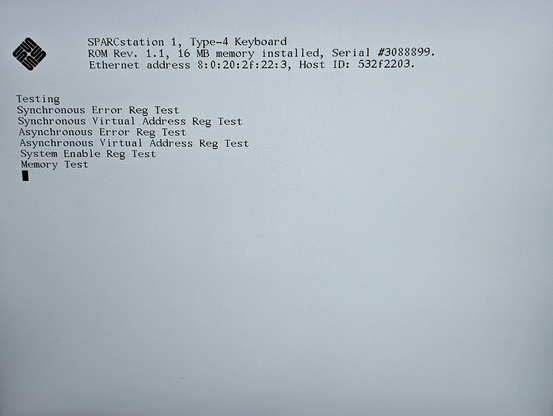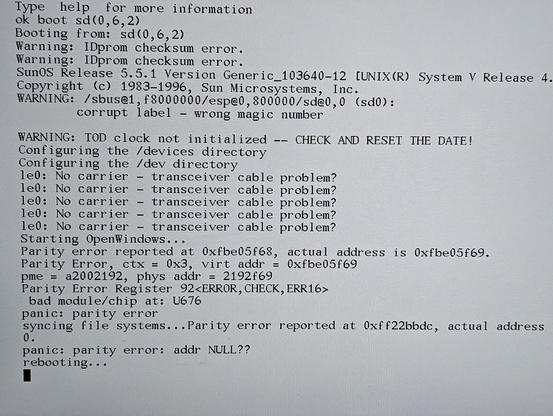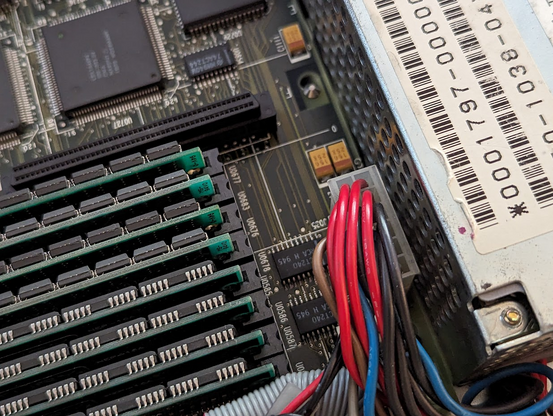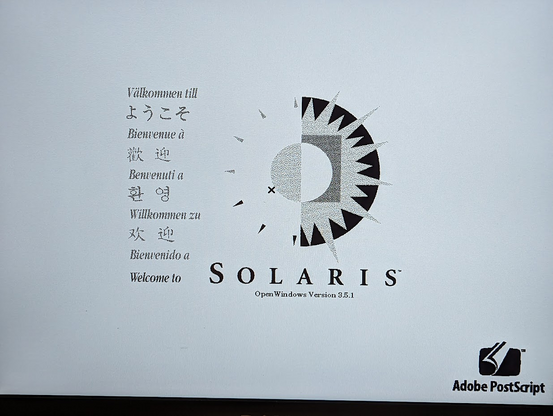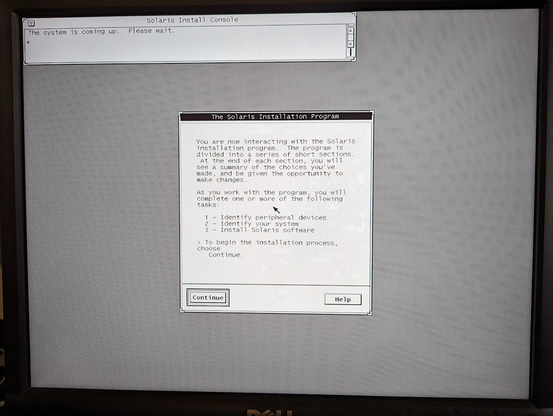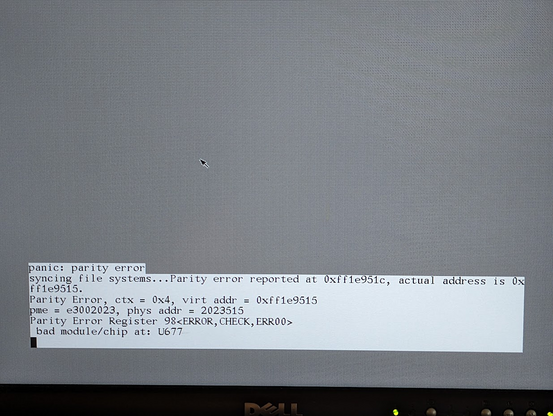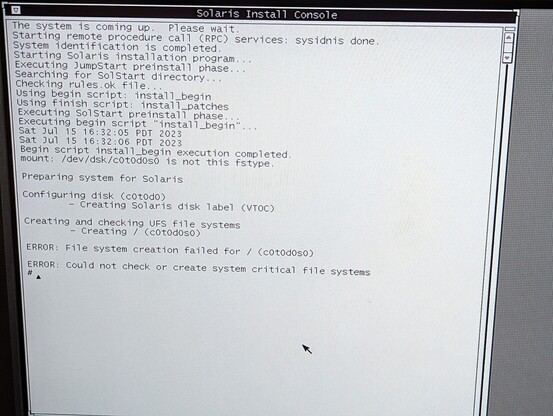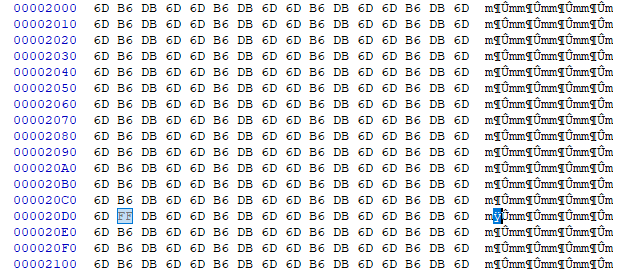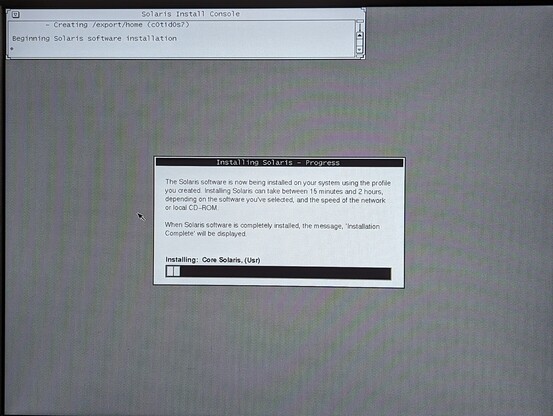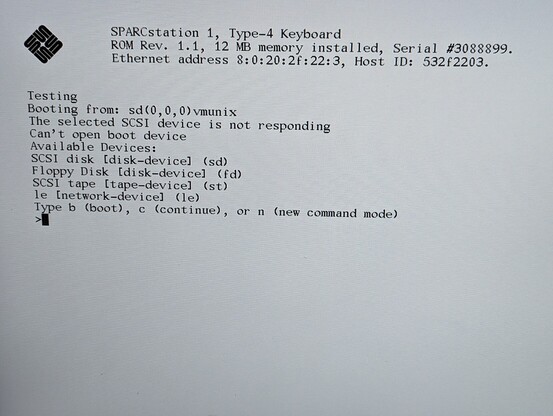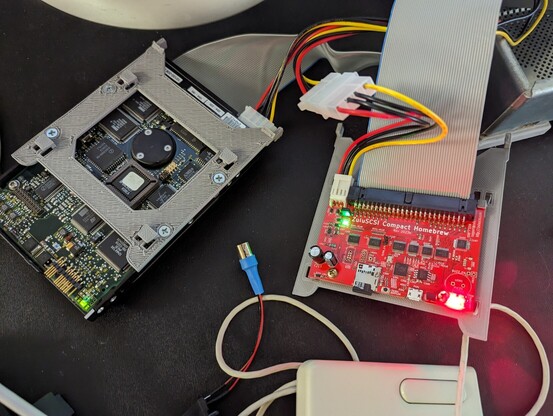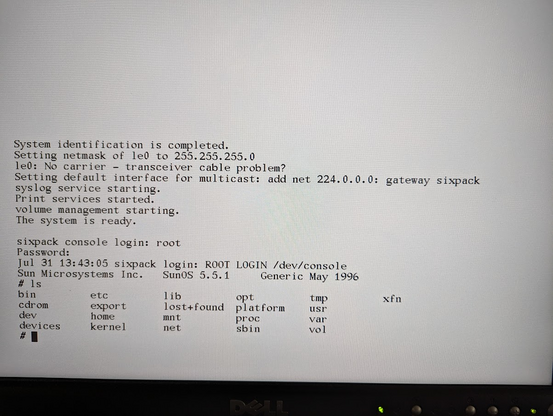 i made the Video Snake Oil board that can adapt 13W3 (any type!) to VGA. you just wire up the little pads to whatever your machine needs.
i made the Video Snake Oil board that can adapt 13W3 (any type!) to VGA. you just wire up the little pads to whatever your machine needs.it seems to run with 12MB RAM. no more parity errors this time. but now the installer hates my SCSI drive (a ZuluSCSI).
filesystem creation failed for / 🤔
i bet it is this issue. basically the ZuluSCSI returns values for disk geometry that somehow confuses the Solaris partition tool. one solution is to use a real SCSI hard drive and then dd it over to the ZuluSCSI once the install is completed.
https://github.com/ZuluSCSI/ZuluSCSI-firmware/discussions/122#discussioncomment-4418076
zululog.txt has the smoking gun:
[996859ms] WARNING: Host used command 0x1A which is affected by drive geometry. Current settings are 63 sectors x 255 heads = 16065 but image size of 2097152 sectors is not divisible. This can cause error messages in diagnostics tools.
i think the solution here is to resize the disk image file so it is divisible by 63*255*512.
 there's no more zululog.txt error but the superblock isn't getting written correctly. 6D B6 DB 6D is the test pattern written by the format command. could be somehow corrupting it during the write?
there's no more zululog.txt error but the superblock isn't getting written correctly. 6D B6 DB 6D is the test pattern written by the format command. could be somehow corrupting it during the write?@tubetime Oh, yeah, that rings a bell, zero and three are swapped in Sun4 ...
Nice!
SAVING a 30-year old Sun workstation! - ISP Series Episode 2
While we may have left on a cliffhanger in our first ISP episode, this might be our most extensive video to date. We get up close with the SPARCclassic, and ...
Is the scsi controller set to id 0?
Also check termination, you should have exactly two. (Not sure if you've used narrow scsi or not, sorry if you know this already.)
512?
Many years ago I wrote a little tool called "scsi-ping" which gives you a working disktab entry for a SCSI disk.
It's still out there somewhere.
@bsdphk @tubetime From your FreeBSD homepage:
scsi-ping Has taken a life of its own, I don't administrate any Solaris hosts these days, so I can't help you figure out what to do about your disktab. The most recent version I know about is here: ftp://ftp.cdf.toronto.edu/pub/jdd/scsiping
Edit: since that led nowhere, here's a working URL: https://www.cs.toronto.edu/pub/jdd/scsiping/
@tubetime owo...
i hope you saw @ncommander 's #Solaris livestreams...
@tubetime I like how "WARNING" is all caps and "panic" is kept on the down-low with no caps.
I guess 'panic' has another meaning than what is coming to mind.
@tubetime
It has been years since I last saw
le0 no carrier log messages.
Thanks for that!
@tubetime I had to do this for my lunchbox machines (an IPX and an LX)
But for my Sun Blade 100, I had to do a whole different thing to recover the IDPROM
of the three machines, only the IPX got a modern IDPROM replacement. The others have CR2032s with holders hacked in. :o( (though not the Duct Tape Special you had!)
